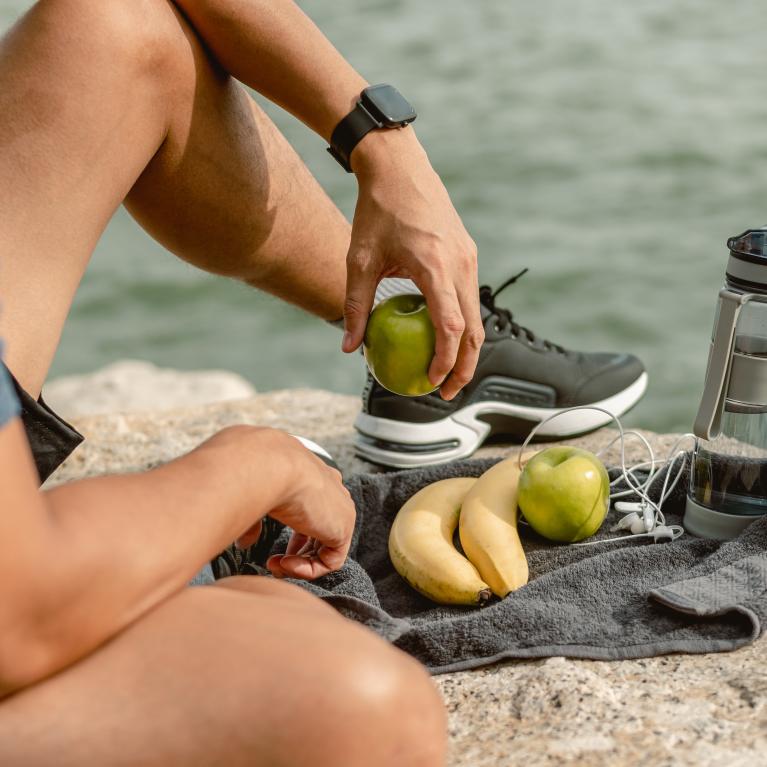
The hard work is done, now it’s time to energise yourself for the victory lap.
In the days before the marathon, it’s important to fuel your body correctly so it’s raring to go for those 26.2 miles.
Sponsored by Green Chef

To help you out, we caught up with nutritionist Lily Keeling – a healthy recipe whizz at Green Chef.
What is carb-loading?
Carb-loading is a strategy used to maximise glycogen stores in the muscles before an endurance event. The goal is to ensure the body has a readily available energy supply to sustain activity over a long period of time.
You should begin carb-loading two to three days before the marathon. At this point, you’ve made it to the end of your Training Plan and shouldn’t be doing any intense workouts. It’s time to preserve the glycogen stores and increase your carb intake.
Why is carb-loading important?
Your training has got your body ready to accomplish an incredible distance, but it’s crucial you give it the best chance to do so by putting the right fuel in the tank.
Carb-loading can help aid performance by:
- Delaying fatigue: by increasing glycogen stores, carb-loading helps you maintain energy for a longer time, delaying the onset of ‘hitting the wall’ – the point where you feel unable to continue exercising
- Optimising endurance: glycogen stores fuel your muscles to keep going throughout the marathon
- Prevents dehydration: many carb-rich foods help the body retain water, which can support hydration during the event
What should you eat?
It’s time for training to take a back seat as you focus on your food! Think of this as a reward for all your hard work, but it’s important you eat the right foods to carb-load effectively.
It’s also a good idea to plan your meals in advance and test carb-loading during your training to see what works best for your body, and speak to a nutritionist or dietitian if necessary.
Eat grains and starches such as pasta, bread, bagels, couscous, oats, and white rice. Lily’s favourite is Green Chef’s Lemongrass Sticky Beef.
Don’t forget your veggies – sweet potato and squash are packed full of carb goodness. Check out the Chermoula Chickpea and Butternut Squash Stew.
Good snacks include rice cakes, low-fat crackers, dried fruits and, of course, a runner’s favourite – bananas! To quench your thirst and get your carbs, try sports drinks, fruit juice and smoothies.
If you’ve got coeliac disease or another condition which requires you to closely monitor what you eat, check out the following advice:
Gluten-free options for people with coeliac disease:
- Try gluten-free pasta, bread, and rice
- Snack on gluten-free crackers and energy bars
- Eat potatoes, bananas, and fruit smoothies
People with diabetes or insulin sensitivity:
- Monitor blood sugar levels closely
- Use carbs with a low glycemic index, such as sweet potatoes and quinoa, and pair them with small amounts of protein for balance
Avoid these carb-loading errors!
We get it, it’s exciting when the training is done and you can put your feet up and eat good in the days before the marathon. But there are some common pitfalls you should avoid:
- Overeating: carb-loading is not about overeating but replacing fats and proteins with carbohydrates. Avoid excess calories that could lead to digestive discomfort.
- High-fibre foods: avoid high-fibre foods such as whole grains, legumes, and raw vegetables, which can cause bloating.
- Not hydrating enough: increased carbs require more water for storage, so make sure you’re drinking enough water.
- Experimenting with new foods: stick to familiar foods to avoid bad reactions.